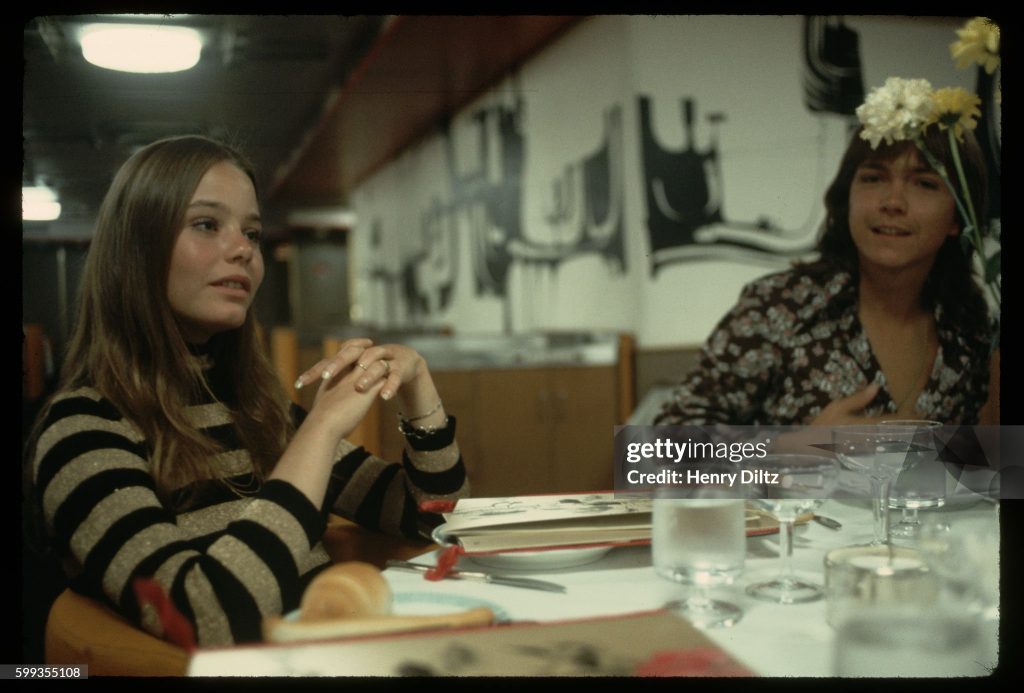
A Nostalgic Ode to Unrequited Love: “Stephanie” by The Partridge Family
In the early 1970s, amidst a whirlwind of social change and musical evolution, The Partridge Family emerged as a pop culture phenomenon that captured the hearts of many. Their song “Stephanie,” a lesser-known yet profoundly touching ballad, offers a poignant exploration of unrequited love and longing, themes that resonate deeply with listeners even decades after its release.
“Stephanie,” featured on their 1972 album “Shopping Bag,” did not achieve significant commercial success on its own in terms of chart performance. Unlike their chart-topping hits such as “I Think I Love You,” “Stephanie” was more of a hidden gem within their discography. However, the song’s understated charm and emotional depth have allowed it to maintain a special place in the hearts of devoted fans and those who seek solace in its tender melody and heartfelt lyrics.
At its core, “Stephanie” is a beautifully crafted narrative that delves into the bittersweet nature of unreciprocated feelings. The song paints a vivid picture of longing through its gentle, wistful lyrics and soft instrumentation. It tells the story of someone hopelessly enamored with Stephanie, a figure who remains just out of reach. The emotion conveyed in the song is universal, speaking to anyone who has ever experienced the pangs of love unreturned.
David Cassidy, the charismatic lead vocalist of The Partridge Family, delivers an evocative performance that is both vulnerable and sincere. His voice, rich with emotion, captures the essence of youthful yearning—a longing for connection that is both timeless and ageless. As Cassidy croons about Stephanie, listeners are transported back to moments in their own lives when they too have yearned for someone beyond their grasp.
The story behind “Stephanie” is as intriguing as the song itself. Written by veteran songwriters Terry Cashman and Tommy West, it reflects the duo’s knack for crafting songs with relatable themes and memorable melodies. Although not much is documented about the specific inspiration for “Stephanie,” it fits seamlessly into The Partridge Family’s oeuvre, known for its exploration of love and relationships through a lens that combines optimism with introspective melancholy.
For many older listeners, “Stephanie” serves as a time capsule—a reminder of days gone by when they might have experienced similar feelings of affection from afar. It evokes memories of late-night listening sessions by the radio or record player, where one could get lost in music’s ability to articulate emotions often left unspoken. The soothing harmonies and gentle guitar strums create an atmosphere ripe for reflection and nostalgia.
Musically, “Stephanie” stands out with its simple yet effective arrangement. The song’s instrumentation is understated, allowing Cassidy’s emotive vocals to take center stage. This minimalist approach enhances the song’s emotional impact, drawing listeners into its narrative without overwhelming them with complex musical layers. It’s this simplicity that makes “Stephanie” enduringly powerful; it allows listeners to focus on the emotional weight of the lyrics and the sincerity of the performance.
Though it may not have achieved mainstream acclaim or climbed high on music charts at its release, “Stephanie” endures as a cherished piece among those who appreciate The Partridge Family’s contribution to pop music history. It represents an era where songs were crafted not just for immediate success but for their ability to connect deeply with audiences on an emotional level.
In revisiting “Stephanie,” we are reminded of music’s unique power to capture fleeting moments and immortalize them in melody and verse. It speaks to the universal human experience—of love sought after but never fully realized—and offers solace in knowing that such feelings are shared across generations. For those who lived through the era of The Partridge Family or discovered them later in life, “Stephanie” remains an emblematic piece of nostalgia—an enduring testament to the timeless nature of heartfelt music.
